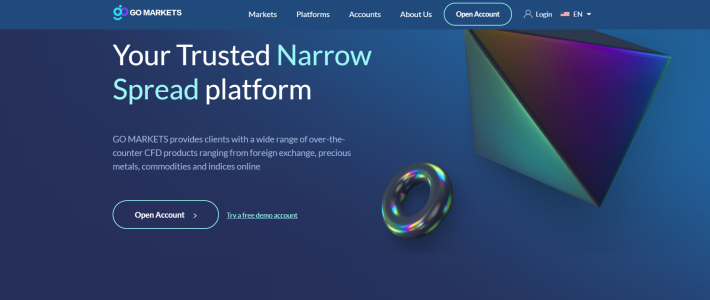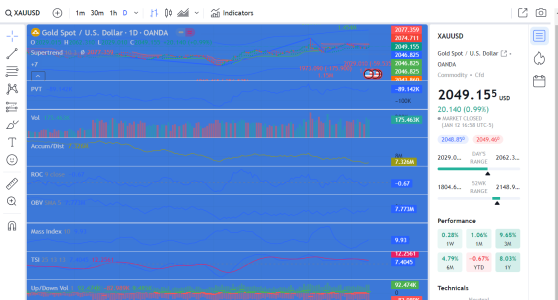Trade Commodities[Go Marketes]
You can invest in oil, gold, or base metals by buying individual stocks, exchange-trading funds (ETFs), or mutual funds that focus on those sectors. But there are other ways to go:
Oil futures are a favorite of day traders and are bought and sold through brokerages that specialize in futures trading. This is volatile stuff and not for the faint of heart.
Gold investors can purchase bars, coins, or jewelry, and stash them in a safety deposit box.
Base metals like aluminum, zinc, and copper are valuable only in huge quantities. The best way to invest in them is through the stocks of producers like Alcoa and U.S. Steel, or through ETFs.
What Is Commodity Investing?
Commodity trading goes back centuries, even before stocks and bonds exchanged hands. It was a very important business, linking different cultures and people. From spices and silks in the early days to the exchanges where these assets are now traded, commodities are still popular investment vehicles.
Investors hoping to get into the commodity market can do so in several different ways. Commodity-hungry investors can consider investing directly in the physical commodity, or indirectly by purchasing shares in commodity companies, mutual funds, or exchange traded funds (ETFs).
Benefits
One of the biggest benefits of investing in commodities is the fact that they tend to protect investors against the effects of inflation. Generally, demand for commodities tends to be high during periods of high inflation, which pushes up prices. It's also a good bet against the U.S. dollar; so when the greenback declines, commodity prices rise.
Aside from the benefits of diversification, there is the potential to maximize returns with commodity investing. Although commodity prices are subject to fluctuations in the market through exchange rates, interest rates, and the global economy, global demand is strong. This has an overall positive impact on the stocks of companies that deal specifically with commodities, which can translate to positive returns for investors.
Unique Risks
One thing to keep in mind is that commodities tend to be much more volatile than other kinds of investments, especially funds that track a single commodity or a specific sector of the economy.
Investors who trade futures should remember that it involves speculation. Futures contracts involve tracking an underlying commodity or index. This could have an impact on the performance of the contract and thus give the investor a negative (or positive) difference.
Futures also come with their own set of unique risks that must be managed independently of the underlying commodity.1
Pros
Protect against inflation
Diversify a portfolio
Hedge against a decline in the base currency
Help hedge price risk
Cons
Increased volatility when compared to other investments
Margin trading in commodities potentially resulting in significant losses
Speculative nature of trading with uncertainty of the outcome
Futures markets are regulated by the Commodity Futures Trading Commission (CFTC).2
Commodity Futures Trading Commission. "About the Commission."
Crude Oil
If you have crude oil in mind, it helps to know what shapes prices and how you can invest in this commodity. After production, crude oil is refined into many different products, including gasoline that is used to fuel vehicles. But it goes beyond just gas. Products made from petroleum include plastics, medicines, linoleum, shingles, ink, cosmetics, synthetic fibers, solvents, fertilizer, asphalt, and thousands of others.3
But what affects prices? Crude oil generally reacts to the laws of supply and demand. When demand exceeds supply, prices tend to rise. When demand wanes and supply remains fairly consistent, prices tend to fall. For instance, when gas is in high demand—say, during the summer driving season—the price at the pumps rises, translating into higher crude oil prices.
Similarly, demand from developing nations such as China and India—whose economies are still growing—is also pushing up prices. Geopolitics also has a big impact on the price of crude oil. Tensions in the Middle East, where much of the world's oil is produced, can send oil prices skyrocketing.
Oil prices were once greatly influenced by the producer cartel OPEC, made up mainly of Middle-East countries. In the early 21st century, the development of new technology, particularly hydro-fracturing (fracking), created a second U.S. energy boom, largely decreasing OPEC's importance and influence. Today, the U.S. is the largest net producer of crude oil in the world.4
How to Invest in Crude Oil
Investing in physical crude oil isn't as easy as investing in other commodities; you can't just buy a barrel of oil. As an investor, you may consider futures; the most direct method of owning the commodity outright. But futures can be highly volatile and need a good deal of capital.

















